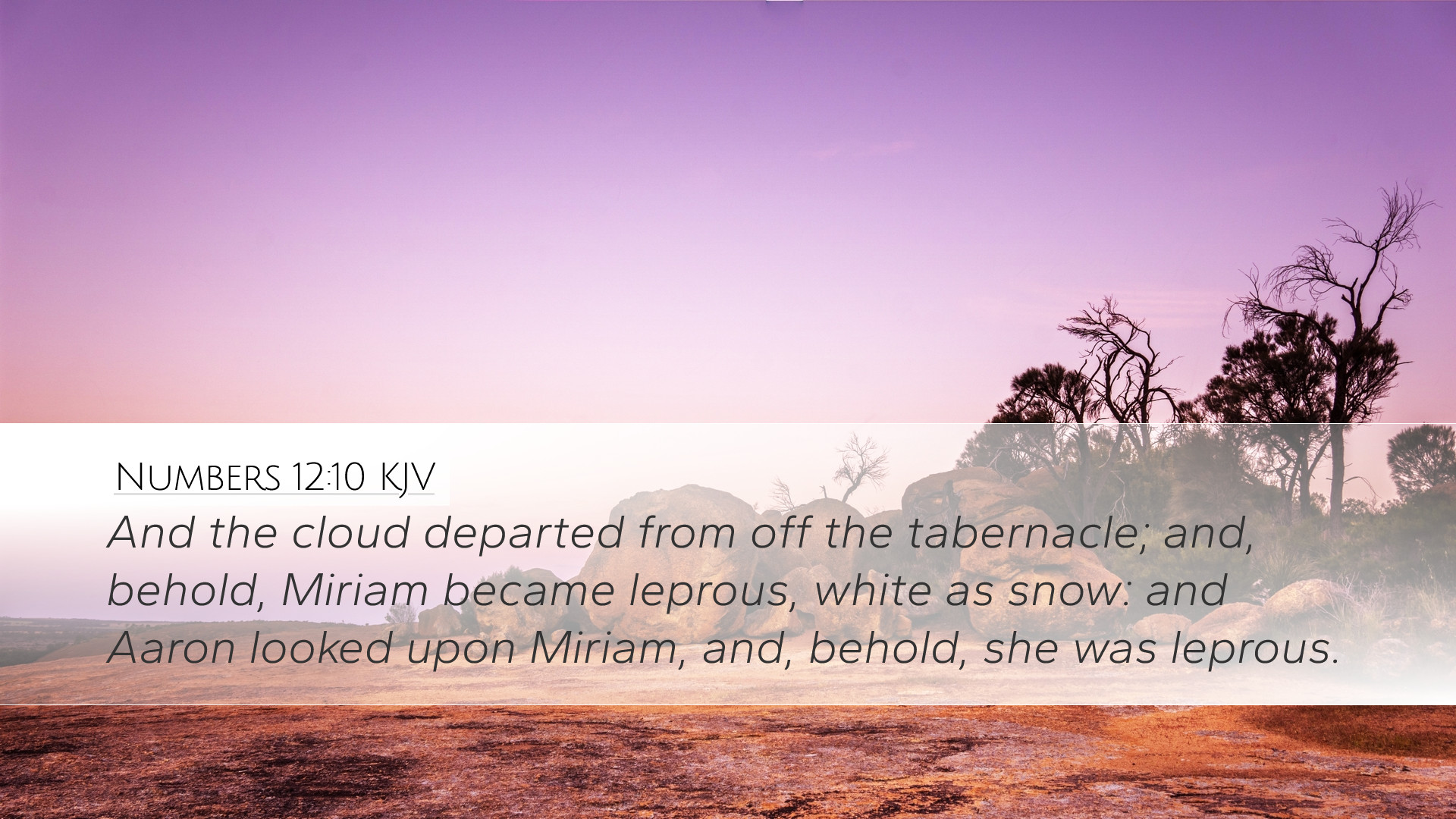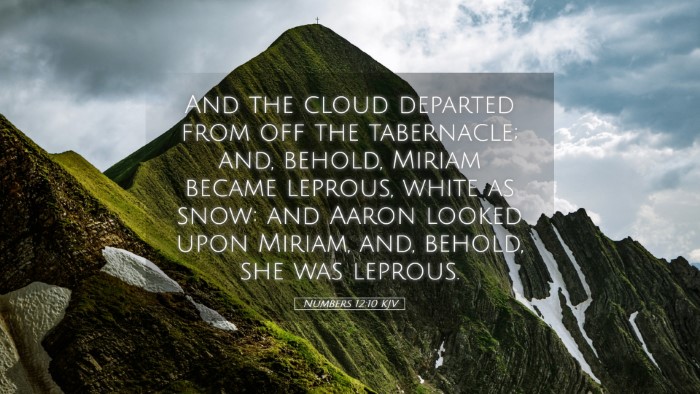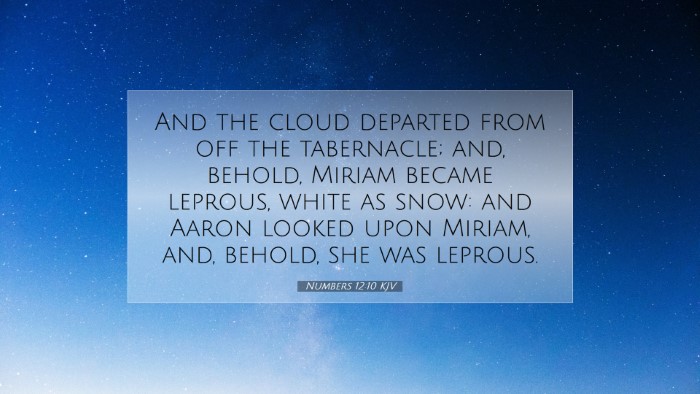Commentary on Numbers 12:10
Numbers 12:10 states: "And the cloud departed from off the tabernacle; and, behold, Miriam became leprous, white as snow: and Aaron looked upon Miriam, and, behold, she was leprous."
Introduction
This passage presents a significant moment in the narrative of the Israelites during their wanderings in the wilderness. The events surrounding Miriam's leprosy serve as a profound lesson on authority, humility, and divine judgment. The insights from Matthew Henry, Albert Barnes, and Adam Clarke provide a multifaceted understanding of this critical scripture.
Contextual Background
The chapter chronicles a rebellion by Miriam and Aaron against Moses' leadership, stemming from jealousy and a misunderstanding of divine appointment. The miraculous cloud represented God's presence and guidance, which withdrew, signaling His displeasure. Understanding the context is crucial for interpreting the ramifications of Miriam's actions.
Interpretative Insights
-
Matthew Henry's Commentary
Henry emphasizes the abruptness of Miriam's punishment. The departure of the cloud illustrates God's immediate response to the dissent. Henry notes, "The leprosy was a visible token of the displeasure of God, not only towards Miriam’s actions but also as a warning against all who might oppose the divine order." This speaks to the serious nature of speaking against God’s appointed leaders.
-
Albert Barnes' Notes
Barnes highlights the significance of leprosy as a spiritual metaphor. He remarks, "Leprosy in the Scriptures often symbolizes sin; it isolates and makes one unclean, reflecting the soul's condition when it strays from God’s path." Thus, Miriam's leprosy serves as a stark illustration of the consequences of envy and rebellion.
-
Adam Clarke's Commentary
Clarke provides a detailed examination of leprosy, pointing out its physical and social ramifications: "Leprosy would exclude Miriam from the camp, reflecting her separation due to sin, which similarly isolates individuals from communal and spiritual life." He also discusses the societal implications, stressing the importance of community in the life of Israel.
Theological Implications
This event serves as a theological reminder that God watches over His servants and upholds His authority. It emphasizes the seriousness with which God views rebellion and the purity of His appointed leaders. The punishment of Miriam, a prominent prophetess, underscores that even those in high positions are not exempt from God's judgment.
Lessons for Pastors and Leaders
-
The Danger of Jealousy:
This passage warns against the dangers of jealousy and pride within leadership. Just as Miriam and Aaron were judged for their dissent, leaders today must cultivate humility and guard against envy among peers.
-
The Importance of Divine Order:
The incident conveys the significance of recognizing and respecting divine authority within the church. Leaders are urged to reflect on their actions and their implications in light of God’s structure for leadership.
-
Consequences of Sin:
It serves as a reminder that sin has tangible consequences, not only for the individual but for the community as well. The need for accountability and repentance is paramount for spiritual leaders.
Conclusion
Numbers 12:10 is more than a historical account; it serves as a vital lesson in humility, respect for God's order, and the repercussions of sin. The insights from various public domain commentaries provide a rich tapestry of understanding that is relevant to pastors, scholars, and students of the Bible. Through studying this passage, one gains essential knowledge applicable to modern ministry and spiritual life.


